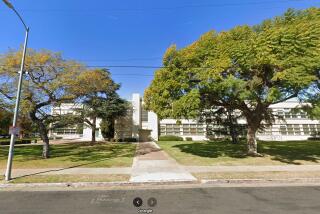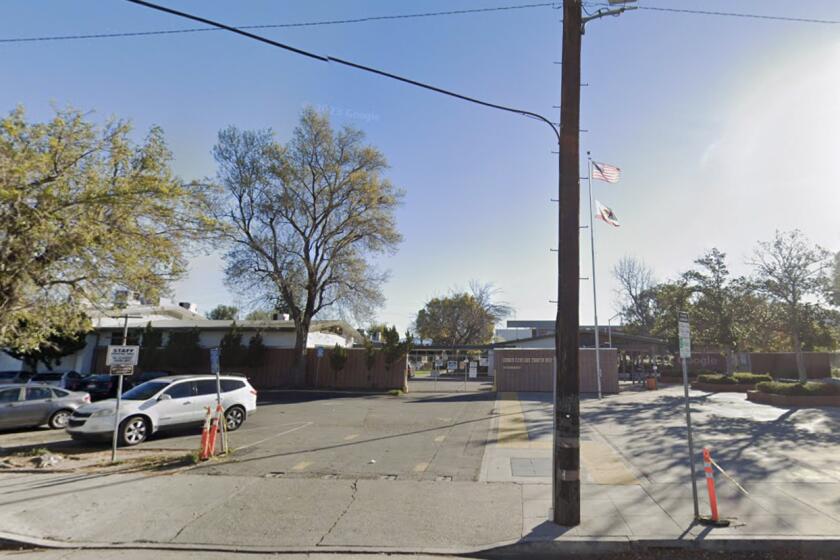Robert Durst’s New Orleans charges could carry long prison sentence
When Robert Durst was arrested in New Orleans and charged with two crimes, a search of his room turned up a .38 revolver and about 5 ounces of marijuana, records show.
For a first-time offender, the charge of illegally carrying a weapon in the presence of a controlled substance carries a maximum penalty of 10 years, and possession of a firearm by a convicted felon carries a maximum of 20 years, according to Orleans Parish district attorney’s office spokesman Christopher Bowman.
But for someone with a felony record, the maximum penalty could be life in prison, Bowman said.
Bowman declined to say Thursday whether his office plans to prosecute Durst before he is extradited to California.
“We’re still evaluating the case,” Bowman said.
Prosecutors in New Orleans have the right to hold, and try, Durst before he is sent back to California to answer for the murder of his friend Susan Berman, but that does not mean he will be tried first in New Orleans, legal experts say.
“Usually they’re going to ship him off to the place where the charges are more serious,” said Dane Ciolino, a professor at Loyola University New Orleans College of Law. “But there’s no obligation. ... In theory, they could keep him here, prosecute him and, if he’s convicted, force him to serve his sentence and only then would he be sent to California.”
Still, Ciolino said, it’s “too early to tell” if the Orleans Parish District Attorney will actually take that route.
“I think New Orleans surprised the defense team,” said T. Gerald Treece, a professor at Houston’s South Texas School of Law who has also taught at Pepperdine University in Malibu. “Usually extraditions are worked out through professional courtesy. But there’s no law that says Louisiana has to give him up.”
Ciolino said prosecutors in Los Angeles and New Orleans could work out a “re-extradition agreement,” under which Durst would be returned to Louisiana after being tried in L.A.
Meanwhile, Durst remains in custody in a mental health facility because he has been deemed at risk of suicide.
Court paperwork requesting that Durst be moved to the facility shows that officials asked that his case be expedited due to “inmate safety.”
“Medical staff of the Orleans Parish Sheriff’s Office has determined that [Durst] raises several risk factors for acute mental illness which require further immediate evaluation of [Durst] as the acute mental illness unit” and issued him a “suicide risk order set” to be transferred.
The local jail’s warden, Col. Michael Laughlin, recommended in an affidavit that Durst be moved to Elayn Hunt Correctional Center, where the sheriff has contracted with state prison officials to house inmates with acute mental illness.
Laughlin said Durst should remain there until he is “determined to no longer be a risk to himself.” Details of the assessment of Durst by jail nurses were sealed.
Durst was arrested Saturday in New Orleans in connection with the 2000 fatal shooting of Berman at her Benedict Canyon home. He was charged Monday with murder, and the next day transferred to the mental health facility at a state-run prison in Louisiana.
His extradition to California has been delayed as authorities in New Orleans deal with the drugs and weapons allegations.
Meanwhile, New York authorities remain interested in Durst as they continue to investigate what happened to his first wife, Kathleen, who disappeared in 1982.
Kathleen Durst vanished after she expressed the desire for a divorce. To a friend, she had confided worries about what her husband might do.
Following the disappearance, Berman acted as an “informal spokesman” for Durst. The pair had met at UCLA, where they went to school together.
Prosecutors in Los Angeles allege that Durst killed Berman to prevent her from speaking to police about the disappearance of his wife. Durst could face the death penalty for the murder charge with special circumstances.
Less than a year after Berman’s death, Durst turned up in Galveston, Texas, in connection with the killing of an elderly neighbor, Morris Black. Black’s dismembered body, in several plastic bags, was discovered in the waters offshore. A trail of clues led to Durst’s arrest.
Durst didn’t deny dismembering Black, but he said he inadvertently shot him while wrestling a gun from him.
A jury acquitted him in 2003.
Although Durst’s life has seen a series of high-profile brushes with the law, suspicions about him exploded into a national sensation as they played out in a six-part HBO series, “The Jinx.”
Times staff writer James Queally contributed to this report.
For breaking California news, follow @JosephSerna, @LACrimes and @mollyhf
More to Read
Start your day right
Sign up for Essential California for news, features and recommendations from the L.A. Times and beyond in your inbox six days a week.
You may occasionally receive promotional content from the Los Angeles Times.









